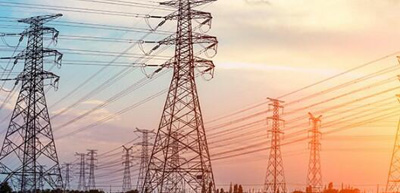PA Faces "Looming Power Crisis" After Gov. Shapiro's Electricity Tax And Plant Closures
Tyler Durden

Not unlike the rest of the country which will soon have aggressive new power needs thanks to the data centers powering AI, Pennsylvania is also facing its own power crisis.
Nearly a year after Gov. Josh Shapiro promised a “new era” in energy—touting job creation, lower utility bills, and billions in clean energy investment—Pennsylvanians see little progress. Instead, he promotes short-term fixes and questionable deals that do nothing to curb rising electricity costs, according to a new op-ed in the Delaware Valley Journal by Senator Gene Yaw.
Shapiro overlooks the real issue: his RGGI electricity tax and the premature shutdown of key power plants without a clear replacement strategy. When energy supply lags behind demand, prices inevitably rise, Yaw notes.
In the next decade, the grid faces a projected 80,000-megawatt shortfall. Pennsylvania, supplying a quarter of the region’s power, would need at least 20 new plants to keep pace—yet none are planned or in development.
Since RGGI’s proposal, Pennsylvania has seen no new baseload energy investment. The governor insists action is needed, yet his carbon tax push and failed policies only worsen the crisis. Real solutions require attracting energy investment, modernizing the grid, and streamlining regulations.
The letter in the Delaware Valley Journal says that he Senate Energy Committee has prioritized grid reliability, collaborating with other states and advancing measures to secure power supply—efforts blocked by Democrats. I’m introducing the Grid Stabilization and Security Act and reviving a Baseload Energy Development Fund to address the shortfall.
"We’ve advanced several measures aimed at addressing grid reliability, including legislation to establish an Independent Energy Office in Pennsylvania, legislation to protect the power grid from purposeful damage and legislation to place decisions regarding energy restrictions within the purview of the legislature," the Senator writes.
"Unfortunately, these measures were only supported by Republicans on the committee. Recently, I announced plans to introduce a bill to address electric generation shortfall by establishing the Grid Stabilization and Security Act. Plans to reintroduce a bill from last session establishing a Pennsylvania Baseload Energy Development Fund are underway."
Yaw continues: "Saying we must diversify our energy sources and create clean, reliable and affordable energy is doing nothing but rearranging the deck chairs on the Titanic. Wind, solar, batteries and other unproven, unreliable sources do not answer this one question: where does my electricity come from at 3 a.m. on a cold, calm winter night?"
"We are racing towards the iceberg and have no plan to slow down, let alone stop, before we get there. We must encourage and implement construction of thermal baseload electric generation capacity now. I hope the governor joins us in this effort."
 our mission: our mission:
to widen the scope of financial, economic and political information available to the professional investing public.
to skeptically examine and, where necessary, attack the flaccid institution that financial journalism has become.
to liberate oppressed knowledge.
to provide analysis uninhibited by political constraint.
to facilitate information's unending quest for freedom.
our method: pseudonymous speech...
Anonymity is a shield from the tyranny of the majority. it thus exemplifies the purpose behind the bill of rights, and of the first amendment in particular: to protect unpopular individuals from retaliation-- and their ideas from suppression-- at the hand of an intolerant society.
...responsibly used.
The right to remain anonymous may be abused when it shields fraudulent conduct. but political speech by its nature will sometimes have unpalatable consequences, and, in general, our society accords greater weight to the value of free speech than to the dangers of its misuse.
Though often maligned (typically by those frustrated by an inability to engage in ad hominem attacks) anonymous speech has a long and storied history in the united states. used by the likes of mark twain (aka samuel langhorne clemens) to criticize common ignorance, and perhaps most famously by alexander hamilton, james madison and john jay (aka publius) to write the federalist papers, we think ourselves in good company in using one or another nom de plume. particularly in light of an emerging trend against vocalizing public dissent in the united states, we believe in the critical importance of anonymity and its role in dissident speech. like the economist magazine, we also believe that keeping authorship anonymous moves the focus of discussion to the content of speech and away from the speaker- as it should be. we believe not only that you should be comfortable with anonymous speech in such an environment, but that you should be suspicious of any speech that isn't.
www.zerohedge.com
| 

